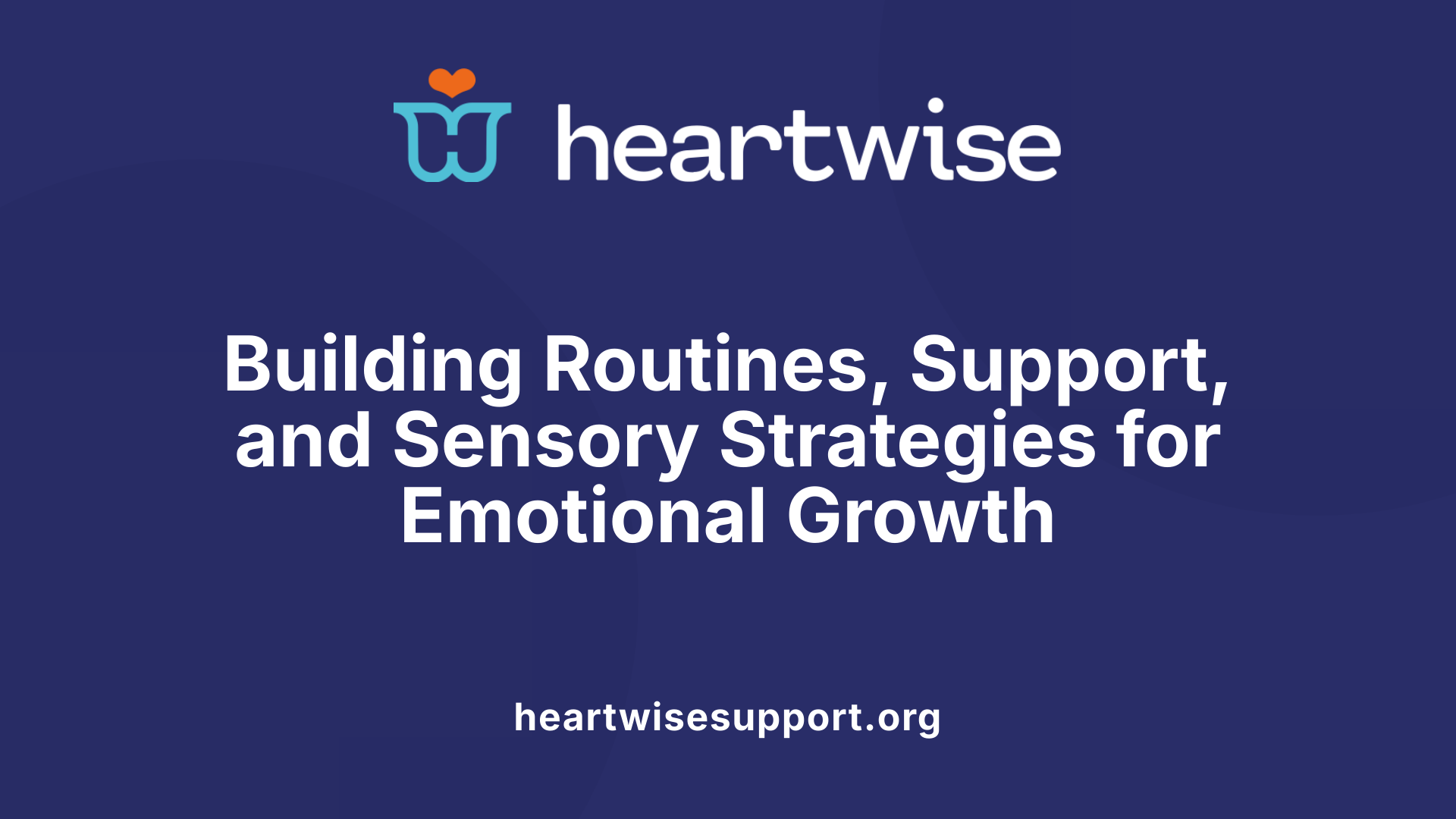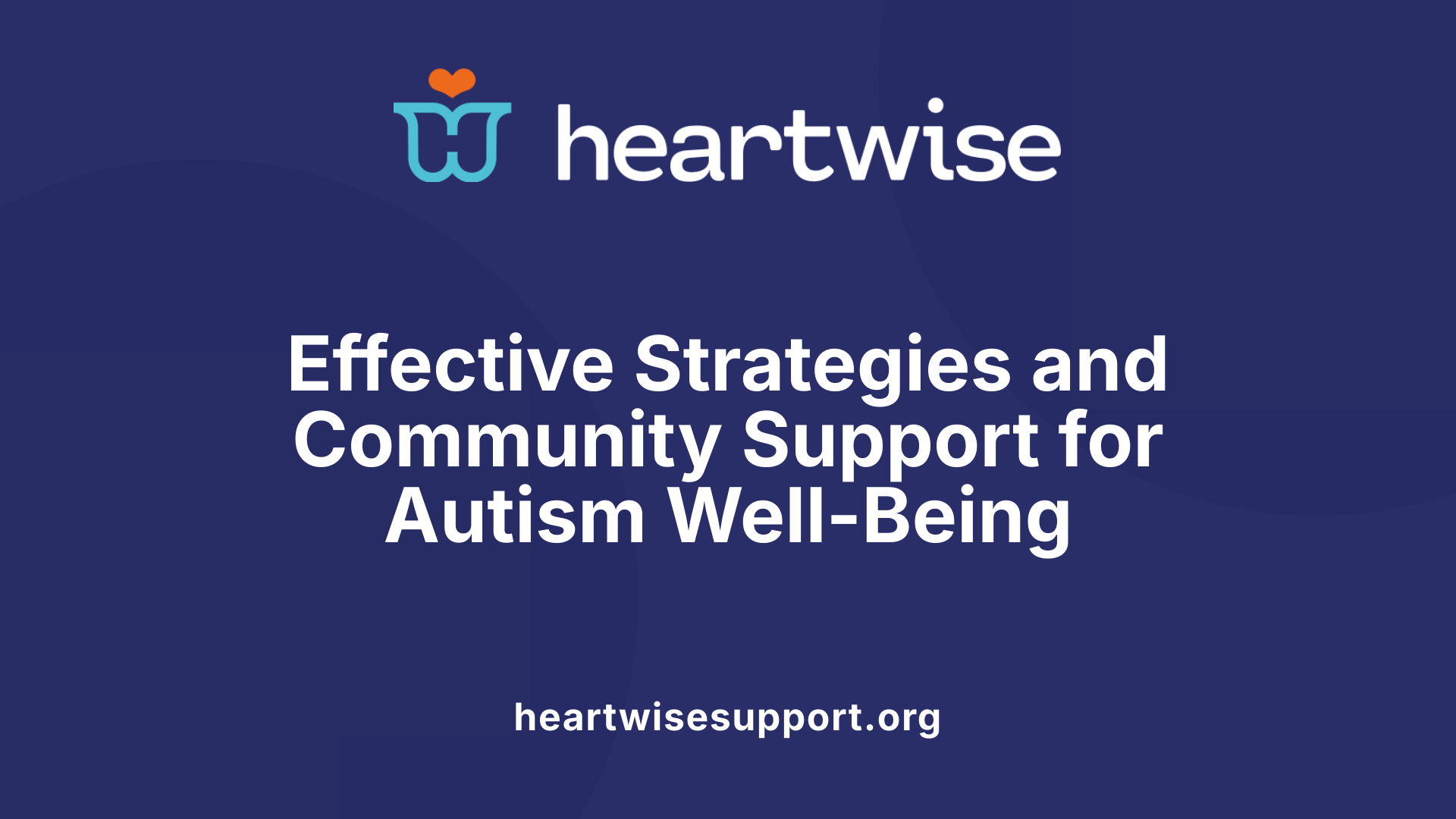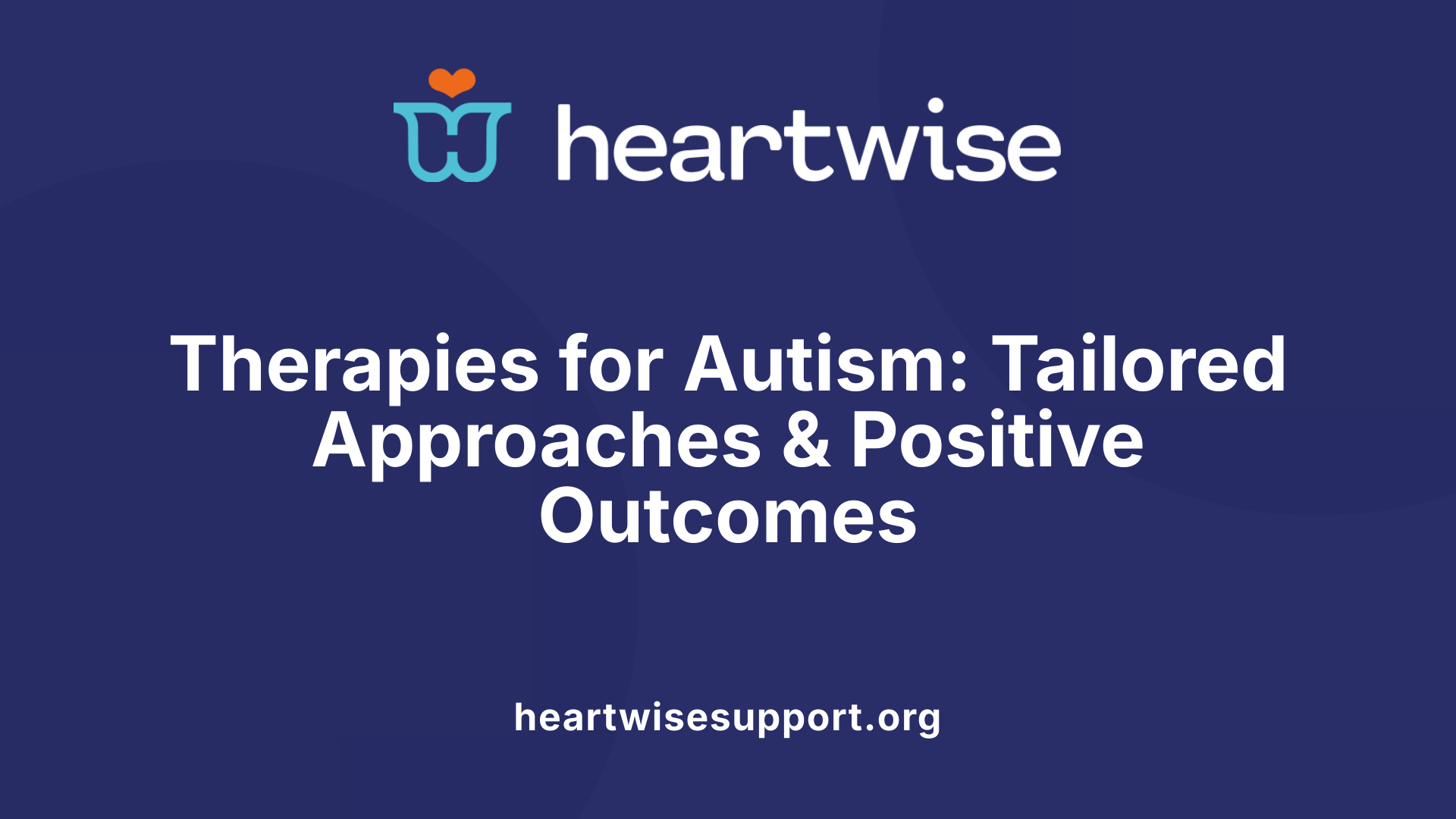Understanding and Nurturing Mental Health in Children with Autism
Children with autism often face unique mental health challenges, with research indicating that up to 78% have at least one co-occurring mental health condition. Addressing these issues requires comprehensive, evidence-based strategies tailored to each child's strengths and needs. This article explores practical methods, effective interventions, therapeutic approaches, and supportive environments designed to enhance emotional well-being and resilience in children with autism.
Practical Methods to Foster Emotional Health

What are some practical methods for improving mental health and emotional well-being in children with autism?
Supporting the mental health of children with autism involves several practical strategies that can be incorporated into daily routines and interactions.
One effective approach is maintaining routines and predictability. Using visual supports like schedules, calendars, or picture boards helps children understand what to expect, reducing anxiety and behavioral challenges. Consistent routines provide a sense of safety and control, particularly when transitions are clearly communicated.
Family-centered and community-based support systems play a vital role. These networks focus on strengthening social communication and fostering social connections, self-esteem, and self-determination. Encouraging participation in social groups, school activities, and peer interactions without pressure helps children develop meaningful relationships, which is essential for emotional well-being.
Sensory management tools are crucial in managing overstimulation and sensory overload. Items such as weighted blankets, fidget toys, or calming music can help regulate sensory input. Creating sensory-friendly environments—dimmed lights, quiet spaces, and the use of calming textures—can significantly reduce stress and emotional outbursts.
Incorporating physical activity, like walking, bouncing, or dancing, benefits emotional regulation. Exercise releases endorphins, alleviates stress, and improves mood. Even short, engaging physical activities can make a positive difference.
Psychological interventions, especially cognitive-behavioral therapy (CBT) adapted for autism, are effective for managing anxiety and depression. These therapies often involve visual aids, concrete examples, and incorporating a child's interests to improve understanding and engagement. Mindfulness and acceptance-based practices also help children recognize and manage their emotions, reducing anxiety and enhancing resilience.
Supporting caregivers through training and involvement further benefits children’s emotional health. When parents are equipped with strategies to support their child's needs and manage their own stress, the overall environment becomes more nurturing.
Environmental adaptations like visual supports, structured settings, and promoting autism acceptance contribute to a supportive atmosphere. These measures help children feel safe and valued, which is fundamental for emotional health.
In summary, combining routines, social support, sensory strategies, physical activity, and tailored psychological therapies fosters a holistic environment promoting emotional well-being in children with autism.
Strategies and Interventions for Enhancing Well-Being

What are effective strategies and interventions to support the mental health and well-being of children with autism?
Supporting the mental health of children with autism involves a combination of tailored approaches that address their unique needs. Establishing consistent routines and using visual supports like picture schedules help create predictability, reducing anxiety and behavioral challenges. Visual aids such as calendars, social stories, and emotion charts prepare children for upcoming activities and help them understand their environment.
Promoting social engagement and involving children in community activities can foster social skills and reduce feelings of isolation. Creating opportunities for children to make friends through social groups, school support, and structured play enhances confidence and emotional resilience.
Leveraging children's interests, such as trains or certain hobbies, can serve as effective motivation tools. Using these special interests in learning and social activities captures their attention and encourages participation, which is crucial for development.
Family and community supports play a significant role, especially in low-resource settings. Family-centered, community-based programs that focus on improving self-esteem, self-determination, and social skills are practical and accessible. These approaches include training parents and caregivers, implementing peer and family support networks, and utilizing low-cost interventions adaptable across different settings.
Interventions like Applied Behavior Analysis (ABA), speech therapy, occupational therapy, and social skills groups have demonstrated positive outcomes. Recognizing and addressing co-occurring mental health issues such as anxiety and depression are vital. Identifying triggers behind challenging behaviors and providing emotional regulation strategies can prevent crises.
Implementing multidisciplinary approaches that involve healthcare professionals, educators, and families creates a comprehensive support system. Education, caregiver involvement, crisis response training, and personalized therapeutic plans contribute to improved mental health and overall well-being for children with autism.
Therapies and Their Effectiveness in Autism Support

What types of therapy are used for autism, and how effective are they?
Supporting individuals with autism involves a variety of therapeutic approaches tailored to each person's unique needs. Behavioral interventions, such as Applied Behavior Analysis (ABA), are among the most well-studied and scientifically supported methods. ABA focuses on reinforcing positive behaviors and reducing problematic ones through structured techniques. It helps improve social skills, communication, and emotional regulation.
Developmental therapies like speech therapy, occupational therapy, and physical therapy aim to enhance specific areas such as language development, sensory processing, and motor skills. Speech therapy supports communication, often using visual aids or alternative communication methods. Occupational therapy helps with sensory sensitivities and daily living skills, while physical therapy improves gross motor abilities.
Educational programs such as TEACCH create supportive classroom environments using visual schedules, routines, and structured teaching strategies that promote learning and independence.
Social-relational therapies focus on improving social interactions through direct social skills training, social stories, and models like DIR/Floor Time. These approaches foster meaningful connections and social understanding.
Though currently there is no cure for autism, early diagnosis and well-planned, individualized interventions often lead to meaningful improvements. Combining behavioral, developmental, and social therapies under professional guidance can significantly enhance quality of life and developmental outcomes.
What therapeutic approaches are available for treating autism and related mental health challenges?
Therapies for autism extend beyond developmental interventions to include strategies targeting co-occurring mental health issues like anxiety, depression, and hyperactivity. Behavioral therapies like ABA are foundational, helping reduce challenging behaviors and teaching essential social and communication skills.
Early intervention programs, such as the Early Start Denver Model (ESDM), integrate play, relationship-building, and behavioral techniques to promote developmental progress in young children. Social skills training and social stories support children in understanding social cues and navigating social situations more effectively.
When mental health challenges are present, therapies like cognitive-behavior therapy (CBT), adapted for autism, assist individuals in managing anxiety and negative thought patterns. Medication may also be prescribed to address specific symptoms such as severe anxiety or hyperactivity, complementing psychological interventions.
Effective treatment plans are highly individualized, combining multiple approaches to address the core features of autism while supporting mental health. Early diagnosis remains critical to maximize the benefits of tailored interventions, promoting overall well-being and social integration.
Supporting Families and Caregivers

How can caregivers and educators support children with autism to manage anxiety, behavioral issues, sleep problems, and social skills development?
Supporting children with autism involves multiple strategies tailored to their unique needs. Establishing structured routines and visual supports like picture schedules and timers helps create predictability, which can reduce anxiety and behavioral challenges. These visual tools prepare children for upcoming activities and minimize surprises, making transitions smoother.
Evidence-based therapies such as cognitive-behavioral therapy (CBT), including social stories, exposure therapy, and social skills groups, can help children understand and manage their fears and social interactions. For sleep difficulties, maintaining routine bedtime schedules, creating calming environments, and using tools like weighted blankets or dimmed lights can improve sleep quality. Intervention programs like applied behavior analysis (ABA) and developmental therapies, including speech and occupational therapy, focus on improving communication and daily living skills.
Promoting emotional regulation through techniques such as social stories and teaching calming strategies supports social development. When necessary, medications may be considered to address co-occurring anxiety or behavioral issues, always under professional guidance. Collaboration with professionals ensures interventions are adapted to fit each child's needs, fostering better mental health and behaviors.
What resources and techniques are available to help caregivers and families support the mental health of children with autism?
Families have access to a variety of support tools designed to improve understanding and practical support. Educational resources, such as guides tailored for parents, grandparents, and siblings, educate families about autism and effective ways to support emotional well-being.
Early intervention is crucial, with assessment tools, screening, and caregiver-mediated interventions like Pivotal Response Treatment and JASPER being effective in enhancing social and communication skills. Telehealth services expand access to therapy and support, especially for families in rural or low-resource areas.
Peer and community support networks, including local groups and online platforms, provide emotional backing, shared experiences, and practical advice. These connections can reduce feelings of isolation and promote resilience.
Technological supports such as mobile apps, online training modules, and digital resources enable families to implement therapeutic techniques flexibly and conveniently. Access to advocacy tools, culturally sensitive intervention methods, and professional guidance through mental health and medical services further strengthen family capacity to support their child's mental health. Combining these resources creates a comprehensive support system that addresses diverse needs and promotes healthier outcomes for children with autism.
Supporting Caregiver Well-Being and Resilience
How can self-care and support be provided for the mental health of caregivers and families of children with autism?
Supporting the mental health of caregivers and their families is vital to creating a stable environment for children with autism. Access to community support services such as peer support groups and counseling helps reduce feelings of isolation and stress. These resources offer a platform for caregivers to share experiences, gather advice, and receive emotional backing.
Respite care options are another essential support. They include in-home services, day camps, or specialized facilities that provide temporary relief for caregivers. This time away allows caregivers to recharge physically and emotionally, helping them manage their high stress levels more effectively.
Educating caregivers about autism and available resources is crucial. Proper knowledge empowers them with better understanding, which can boost their confidence and resilience. Knowing what to expect and how to respond to their child's needs mitigates anxiety and promotes a more positive outlook.
In addition, caregivers should be encouraged to prioritize their own mental health through activities like journaling, mindfulness, or hobbies that promote relaxation. Open communication about feelings, seeking professional help when needed, and participating in self-care practices can significantly enhance emotional well-being.
Furthermore, healthcare providers and support organizations should promote strategies that foster hope and acceptance. Emphasizing strengths and progress, rather than just challenges, encourages caregivers to remain optimistic. Adaptive coping strategies and self-compassion exercises can help them maintain resilience, ensuring they are better equipped to support their child's development and overall family harmony.
By focusing on these areas—support networks, respite opportunities, education, self-care activities, and fostering a positive outlook—families can sustain their mental health and create a nurturing environment for children with autism.
Holistic Approaches for Fostering Resilience and Well-Being
Supporting the mental health of children with autism involves a holistic approach that integrates evidence-based therapies, supportive environments, and family-centered practices. Combining behavioral and developmental interventions with sensory adaptations and social skills training can improve emotional regulation and reduce challenging behaviors. Equally important is empowering families through resources, peer networks, and caregiver well-being initiatives. Advocacy for inclusive, flexible services and community support is vital to ensure each child's mental health needs are met, helping them thrive emotionally, socially, and personally.
References
- Tips for Managing Mental Health Disorders in Children with Autism
- Nurturing the Positive Mental Health of Autistic Children ...
- How to identify and support autistic children at risk of mental health ...
- Supporting Mental Health in Children with Autism
- Autism Services: A Practical Guide to Mental Health Problems
- How to help your autistic child with day-to-day life - NHS
- Strategies and interventions - National Autistic Society
- Advances in Supporting Parents in Interventions for Autism ...
- Effective Mental Health Strategies for Autism Spectrum Disorder
- Autism and Mental Health | Advice for young people - YoungMinds











